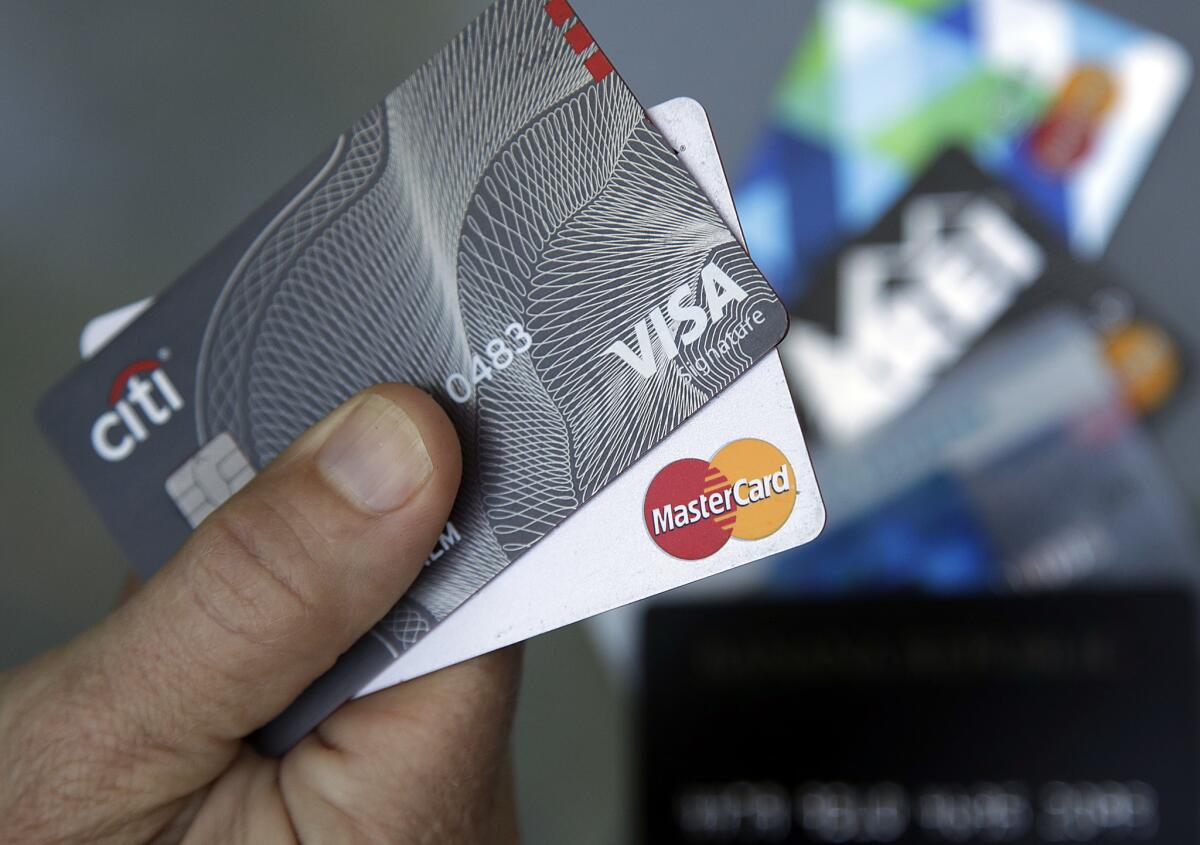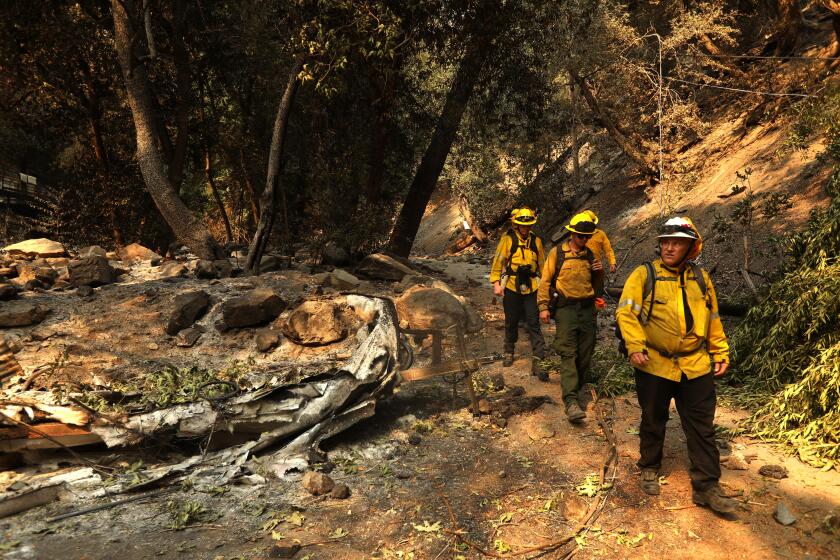Having trouble getting a vacation refund? Try a credit card chargeback. Here’s how

If you’re caught in the catastrophe of travel services promised but never delivered, you have a lot of company amid the coronavirus’ wrecked vacations.
But unlike those folks, you have a powerful tool that may help ease the sting. To be fair, they have it too, but you’re reading this and they’re not.
It’s your credit card. You did charge that hotel stay or vacation package on a credit card, didn’t you? Good. Because a credit card affords protections just for such difficulties, even if this is the granddaddy of them all, under the Fair Credit Billing Act of 1974.
The only hitch: You need to do a bit of work before you turn to this tool. So let’s begin at the beginning.
Much to their credit
Here’s an old friend you may have forgotten: BankAmericard, born in California in 1958 and said to be the first revolving charge account. (Diners Club was founded in 1950, but it was a charge card, not a revolving credit card.)
If you’re of a certain age, you’ll remember those little machines that arrived at the table at the end of your meal (or at a department store when you were making a purchase). You presented your card, it was pressure-imprinted on to copies of your bill, and you and the merchant received a copy. As time went by, thieves also got copies, often by fishing them out of the trash.
Because of the coronavirus lockdown, airlines have canceled flights and reduced schedules. Know your rights and what you are entitled to.
By the beginning of the ‘70s, the credit card industry was serving customers nationwide. Bank of America’s card, now known as Visa, was joined by Master Charge (now known as MasterCard). Carbon copies gave way to electronic processing, which also proved fertile ground for fraud.
Enter the Fair Credit Billing Act of 1974, which was designed to protect credit card holders from charges for purchases they didn’t make or for services they didn’t receive. You could file a dispute with your card company, and it would investigate. While that assessment was underway, the card holder was not liable for payment or interest.
If the card holder was found not liable, the charge was removed.
By 2018, fraud from debit, credit, prepaid and other cards totaled almost $28 billion worldwide, according to the Nilson Report, which reports on the credit card and mobile payment system.
Services not rendered
As coronavirus slithers into every aspect of life, a credit card dispute is sometimes the tool of choice for those who paid for travel services they didn’t receive. It often results in a “chargeback,” which means the merchant is charged for the disputed item or service.
“Chargebacks have gone through the roof because they are so easy from a consumer standpoint,” said Bill Hardekopf, chief executive of LowCards, which covers the credit card industry. But the trend started well before the coronavirus outbreak. “This has been this way for several years,” he said, partly because the process is easy.
And therein lies part of the problem.
Some ticket holders may receive extension on ticket expiration dates
People are going directly to their credit card company because it’s easier than calling the merchant. “Right now, when you call customer service for anything, you have to be prepared to be on hold for an hour or more,” said Sara Rathner, a credit card expert at NerdWallet, a personal finance site.
Coronavirus-related travel issues may fall under the Fair Credit Billing Act when a merchant fails to make good on the vacation rental or package you paid for.
An important consideration: The charge must have been incurred within 60 days for a card company to help.
Travelers who paid for trips and want a refund are filing disputes when they get vouchers instead. So are people who need the money refunded to their cards because they’ve lost their jobs. So are those who tried to get a refund for money paid for a vacation home rental and were rebuffed, then refused when the company filed for bankruptcy.
“When [chargebacks] were originated, they were supposed to be an area of last resort for the consumer,” Hardekopf said.
Now it’s often the first tool they turn too. They don’t realize the action has consequences.
A travel advisor told me recently that if a customer files a dispute over airline ticket refunds and the tickets were purchased through the agency, the charge bounces back on the agency and the advisor. Chargebacks are often accompanied by penalties as well as the demand for the money. If enough are filed against a merchant, that merchant may no longer be eligible to offer that credit card to customers as a payment option.
The four steps to getting a refund
As painful as it is to think about a morning spent on hold, contacting the merchant, whether it’s an airline, hotel or vacation property rental company, should be one of the steps, but not the first one, Rathner said.
Step 1: Gather information — the information you have about the transaction and the information the merchant is offering. Go to the merchant’s website and read the terms and conditions. “Simply by reading its information, you may learn what you need to know,” Rathner said, noting that many travel-related companies have a coronavirus section.
Airlines also have coronavirus information. Unfortunately, some airlines aren’t forthcoming with information about their legal obligations if your flight has been canceled. If the airline cancels the flight and can’t accommodate you on another flight within a certain period of time, its terms and conditions, usually called a contract of carriage or condition of carriage, will note that you are entitled to a refund or a voucher. As dull as those contracts are, they are worth reading. If you are stonewalled, it’s good to be able to say, “But under Rule 24 of your contract of carriage, you say this....” (Print out that part and highlight the language.)
Step 2: Check whether your credit card company offers travel insurance, Hardekopf said. Many cards, especially higher-end cards, offer this benefit. If your travel was aborted midtrip and you had to find your way home, see whether there is trip interruption insurance that can help. It’s worth asking in other circumstances as well.
Step 3: Take a deep breath and call the merchant. Be prepared to keep yourself entertained. Don’t be afraid to ask for what you want but keep your cool. These agents “have been taking these calls for hours, so if you can be that nice person, that bright spot of sunshine” you may fare better, she said.
Step 4: If the merchant can’t accommodate your request, that’s the time to call your credit card company.
“Credit cards get a bad rap because they’re the worst financial tool you can use if you’re not financially responsible,” Hardekopf said. “If you are, they’re the best tool you can use ... . You have somebody to fight for you.”
Have a travel problem, question or dilemma? Write to travel@latimes.com. We regret we cannot answer every inquiry.
More to Read
Sign up for The Wild
We’ll help you find the best places to hike, bike and run, as well as the perfect silent spots for meditation and yoga.
You may occasionally receive promotional content from the Los Angeles Times.









